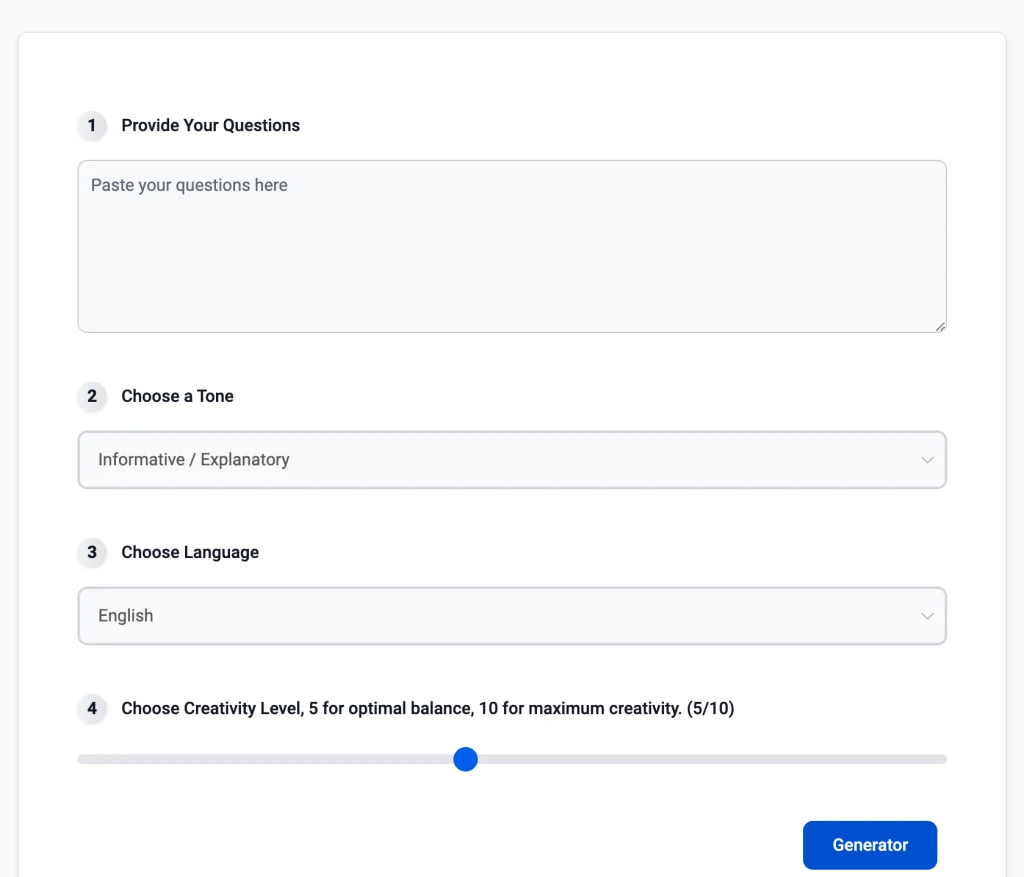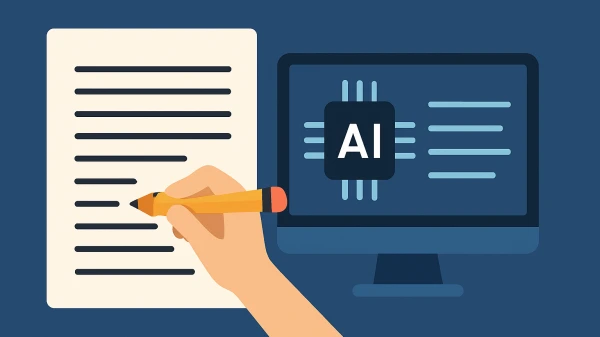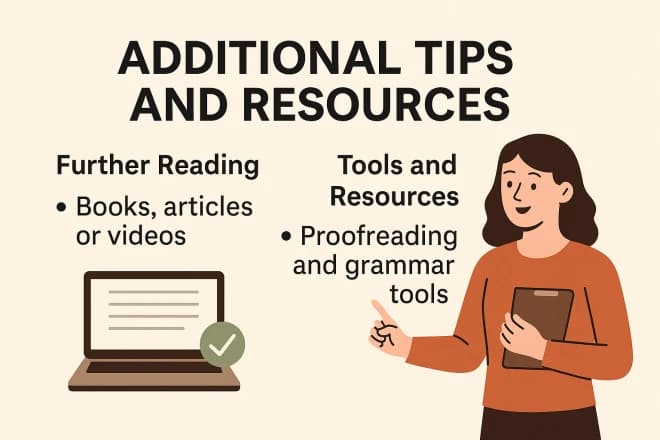Unlock Insights: Find the Answers You Seek on Our Blog
Revolutionize Problem-Solving: Discover How AI Answers Questions and Enhances Efficiency
By Evelyn Sterling
In today’s digital era, AI has evolved from a futuristic notion to a practical tool that boosts efficiency and decision-making across various sectors. It has ushered in a new age of convenience and accessibility, significantly enhancing our ability to tackle complex questions.
AI’s prowess in answering questions breaks through the conventional limits of human knowledge, providing valuable insights and solutions in diverse areas. This is made possible by advanced algorithms and machine learning processes that allow AI to comprehend, analyze, and respond to queries swiftly and with remarkable accuracy.
Furthermore, AI in the realm of question-answering not only makes information gathering more efficient but also democratizes knowledge, extending its reach to a global audience.
This blog post will delve into how AI is revolutionizing the question-answering process, illustrating the variety of problems it can address and introducing AI-powered answer generators. We’ll examine their workings and the breadth of their applicability, highlighting how they contribute to the dissemination and democratization of information.
The Evolution of AI Answering Questions
Historical context of AI development for answering questions.
The evolution of AI in question-answering began with simple computer systems in the mid-20th century and saw major advancements with the rise of the internet and improved technology by the late 1990s. Natural language processing (NLP) played a key role in this progress, allowing AI to effectively understand and use human language.
Advances in natural language processing (NLP) and machine learning.
Further advancements came with machine learning, enabling AI to learn from data and improve its question-answering capabilities. Nowadays, advanced AI models like OpenAI’s GPT and Google’s BERT can process complex language and provide insightful, context-aware answers, making AI a valuable tool for various problem-solving and decision-making tasks.
AI Answers Questions: Enhancing Speed and Accuracy
AI enhances the question-answering process through several key advancements, optimizing how information is processed, understood, and delivered. These enhancements are largely due to improvements in efficiency, accuracy, and speed, which are central to AI’s impact on this domain.
- Efficiency: AI boosts the question-answering process by making it faster, more accurate, and efficient. It uses advanced algorithms to handle numerous queries at once, outperforming human capabilities. For example, AI chatbots in customer service deliver instant answers, allowing humans to tackle harder questions.
- Accuracy: In terms of accuracy, AI, through machine learning, understands and interprets the context of questions, providing precise answers. This is useful in fields like healthcare, where AI aids in diagnosing, or in law, where it helps navigate extensive legal documents.
- Speed: Speed is another advantage, with AI offering rapid responses, essential in areas like financial trading or academic research where timely information is critical.
- Examples of AI in Action: An example of AI’s capabilities in these areas is IBM’s Watson, known for its “Jeopardy!” success, demonstrating how AI can quickly and accurately handle complex questions, highlighting AI’s transformative impact in various sectors.
AI streamlines the question-answering process, enhancing efficiency, accuracy, and speed. This advancement has fostered AI systems versatile enough to support various applications, from automating customer service to facilitating data-driven decision-making.
Common Problems Solved by AI in Question Answering
AI has proven its versatility by addressing a wide range of questions and problems across various sectors. Here, we delve into some of the common areas where AI significantly contributes to problem-solving.
Customer Service
In the realm of customer service, AI-powered chatbots and virtual assistants are revolutionizing how businesses interact with their customers. These AI systems can handle a multitude of common inquiries, such as tracking orders, answering product-related questions, and resolving basic technical issues, thus enhancing the customer experience by providing instant and 24/7 support. For example, the AI chatbot implemented by the online retail giant Amazon can manage a vast array of customer queries efficiently, reducing wait times and improving overall satisfaction.
Education
In education, AI is transforming the learning experience by offering personalized learning paths and instant feedback. AI systems can analyze students’ performance and learning styles to recommend customized content and exercises, thus addressing individual learning needs. Duolingo, a language learning app, uses AI to adapt lessons based on the learner’s progress and areas of difficulty, making language learning more accessible and effective.
Technology
In the technology sector, AI is crucial for enhancing cybersecurity, optimizing software development, and driving innovation in product design. AI systems can monitor and analyze network traffic to detect and respond to security threats in real time. In software development, AI can predict potential issues and suggest improvements, thereby streamifying the development process. Autodesk, a leader in 3D design software, utilizes AI to help designers and engineers in creating more efficient and sustainable designs.
Case Studies
- Customer Service: Sephora, a beauty retailer, employs an AI chatbot that provides beauty advice and product recommendations, improving the shopping experience and customer engagement.
- Education: Carnegie Learning’s AI-driven educational software tailors math teaching, offering individualized learning experiences that improve student outcomes.
- Technology: Tesla’s AI in autonomous vehicles continuously learns from driving data to improve safety and performance, showcasing how AI can lead to significant advancements in technology and transportation.
In conclusion, AI is adept at solving a wide variety of problems across different domains, offering solutions that are efficient, accurate, and personalized. These examples underscore the transformative power of AI in enhancing services and improving outcomes in customer service, education, healthcare, and technology.

Introduction to AI Answer Generator
What is AI Answer Generator
AI answer generator is a type of artificial intelligence system designed to automatically generate answers to questions posed in natural language. These tools leverage sophisticated algorithms, including natural language processing (NLP) and machine learning, to understand, interpret, and respond to user queries with relevant and accurate information.
Functionality of AI Answer Generator
AI answer generator works by analyzing the input question to grasp its context and intent. It then draws upon pre-trained data models to construct an answer. These generators are adept at handling a wide range of question types, from simple factual inquiries to complex problem-solving tasks, making them versatile tools in various applications.
How to Use AI Answer Generator: Step-by-Step Guide
- Provide Your Questions: In the text box under the “Provide Your Questions” section, type in the question(s) you’d like the AI to answer. You can enter one or multiple questions as needed.
- Choose a Tone: Click on the drop-down menu under “Choose a Tone” to select the tone in which you want the AI to respond. The options may vary but typically include tones like Informative/Explanatory, Friendly, Professional, etc. Choose the one that best fits the context of your questions.
- Choose Language: If there are multiple language options, click on the drop-down menu under “Choose Language” to select the language you prefer for the AI to use in its responses.
Choose Creativity Level: You will see a slider under “Choose Creativity Level.” If you want a straightforward, factual answer, you might choose a lower setting. For more out-of-the-box responses, slide towards the higher numbers. The middle setting, often marked as 5/10, usually provides a balanced approach. - Generate: Once you’ve set your preferences, click the “Generator” button to submit your question(s). The AI will process your input and provide an answer based on the parameters you’ve selected.
Tips for Using the AI Answer Generator:
- Be Specific: The more specific your question, the more accurate the AI’s response will be. Include key details that might help the AI understand the context better.
- Use Proper Spelling and Grammar: While AI can often understand misspelled words or poor grammar, using clear and correct language will improve the quality of your answers.
- Experiment with Tone: The tone can significantly affect the style of the answer. Don’t be afraid to try different tones to see which one gives you the best result for your needs.
- Adjust Creativity for Different Needs: If you’re looking for standard answers, keep the creativity level low. If you’re looking for unique ideas or solutions, increase the creativity level.
- Multiple Questions: If you’re entering more than one question at a time, consider how they’re related. The AI may handle a list of unrelated questions differently from a set of questions on the same topic.
- Review and Refine: After generating an answer, review it to ensure it meets your needs. If not, refine your question or adjust the settings, and try again.
Remember, the AI Answer Generator is a tool, and like any tool, its effectiveness depends on how you use it. Don’t hesitate to play around with the different settings to fully understand how each one affects the AI’s responses. With practice, you’ll get a feel for how to craft your queries to get the best results from the AI.
In summary, AI has significantly advanced in question-answering, evolving from basic systems to sophisticated tools capable of understanding and interacting in human language, thanks to natural language processing and machine learning. It’s applied across various sectors, enhancing efficiency, accuracy, and speed in responding to queries.
AI Tools Categories
Browse all AI tools by category
All AI Tools
229Amazon
5AI Writing Generator
85Article & Content Writing
35Branding & Identity
54Content Generation
170Creative Ideas
32Educational Resources
34E-commerce
14Etsy
6Events & Celebrations
13Facebook
6Gaming & Fun
5Instagram
3Lifestyle & Personal
8LinkedIn
6Marketing & SEO
40Poem & Lyrics Writing
19Professional Documents
31Social Media
44Story & Book Writing
49Text Effects
14TikTok
7Twitter
3Writing Enhancement
36YouTube
11
Highly rated and most popular AI tools curated by our experts
Recently added AI tools that are gaining traction
- AI Post Generator

- AI Bullet Point Generator

- AI Discussion Post Generator

- AI 2 Weeks Notice Letter Generator

- AI Content Creation Ideas Generator

- AI Radio Ad Script Generator

- AI Podcast Script Generator

- AI Resume Objective Generator

- AI Resume Headline Generator

- AI Password Generator

- AI Snapchat Caption Generator

- AI Snapchat Username Generator

- AI Pinterest Board Name Generator

- AI LinkedIn Experience Description Generator

- AI Twitter Hashtag Generator

- AI YouTube Short Idea Generator

we prioritize displaying the latest content closely related to the current blog post.








